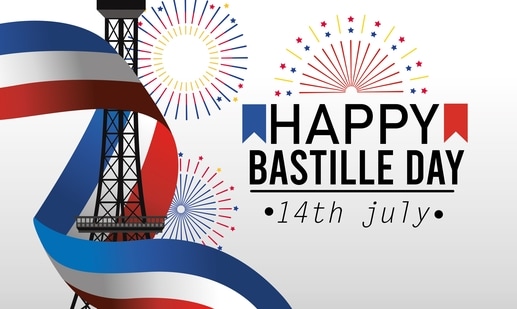Context
-
The French National Day is celebrated on July 14 each year, on the anniversary of the storming of the Bastille prison in Paris in 1789 known as Bastille Day.
Antecedents: crisis of the ancien régime
- The ancien régime, or the ‘old regime’, is the retrospective label given to the socio-political system in France that preceded the French Revolution. By the mid-18th century, this regime, headed by a decrepit monarchy, was in crisis.

Credit: Hindustan Times - Notably, France faced budgetary troubles with revenues not keeping up with expenditure, primarily on the military, and the tax burden falling majorly on the already impoverished peasantry.
Revolution begins: storming of the Bastille
- On July 14, a huge, armed mob began marching towards the Bastille, a 14th century fortress-prison in Paris that had become one of the most reviled symbols of the monarchy. Since the time of Louis XIV, the Bastille had been used to incarcerate French political prisoners at the behest of the monarch, without a trial or a stated cause.
- Philosopher Voltaire, who spent some time in the Bastille, as the “palace of revenge”.
- After failing to negotiate with the mob, Bernard-René de Launay, the governor of the Bastille, opened fire.
- After some serious fighting, which saw the working class mob being reinforced by mutinious French soldiers, the Bastille fell. De Launay was lynched to death by the angry public.
- The Revolution had begun, and the ‘public’ drew its first blood.
- Among the revolutionaries, the Bastille came to symbolise the ancien régime, and its falling, the promise of the Revolution. Over the next few months, the fortress was effectively destroyed.
Remembering Revolution: choosing Bastille Day
- The French monarchy was abolished only in 1792, and Louis XVI guillotined a year later. The Revolution, however, did not actualise its driving principles of “Liberté, égalité, fraternité”. Political violence and instability continued till Napoleon seized power in 1799, bringing an end to the revolutionary period.
- During the revolutionary period, the storming of the Bastille had been celebrated annually since 1790, often in grand events which included the burning of Bastille replicas. But under Napoleon, and after the subsequent return of the monarchy in 1815, these ceremonies became more muted.
- It was finally in 1879, that July 14 was chosen as France’s National Day, by Republican President Jules Grévy. At the time, however, there was some consternation regarding the violent history of July 14. To those who had issues, the Republicans — those who opposed the institution of monarchy — pointed to July 14, 1790, the day in which the inaugural Fête de la Fédération (or the “Festival of the Federation”) was held across France, celebrating not just the Revolution, but also national unity.
Source: IE
Visit Abhiyan PEDIA (One of the Most Followed / Recommended) for UPSC Revisions: Click Here
IAS Abhiyan is now on Telegram: Click on the Below link to Join our Channels to stay Updated
IAS Abhiyan Official: Click Here to Join
For UPSC Mains Value Edition (Facts, Quotes, Best Practices, Case Studies): Click Here to Join
